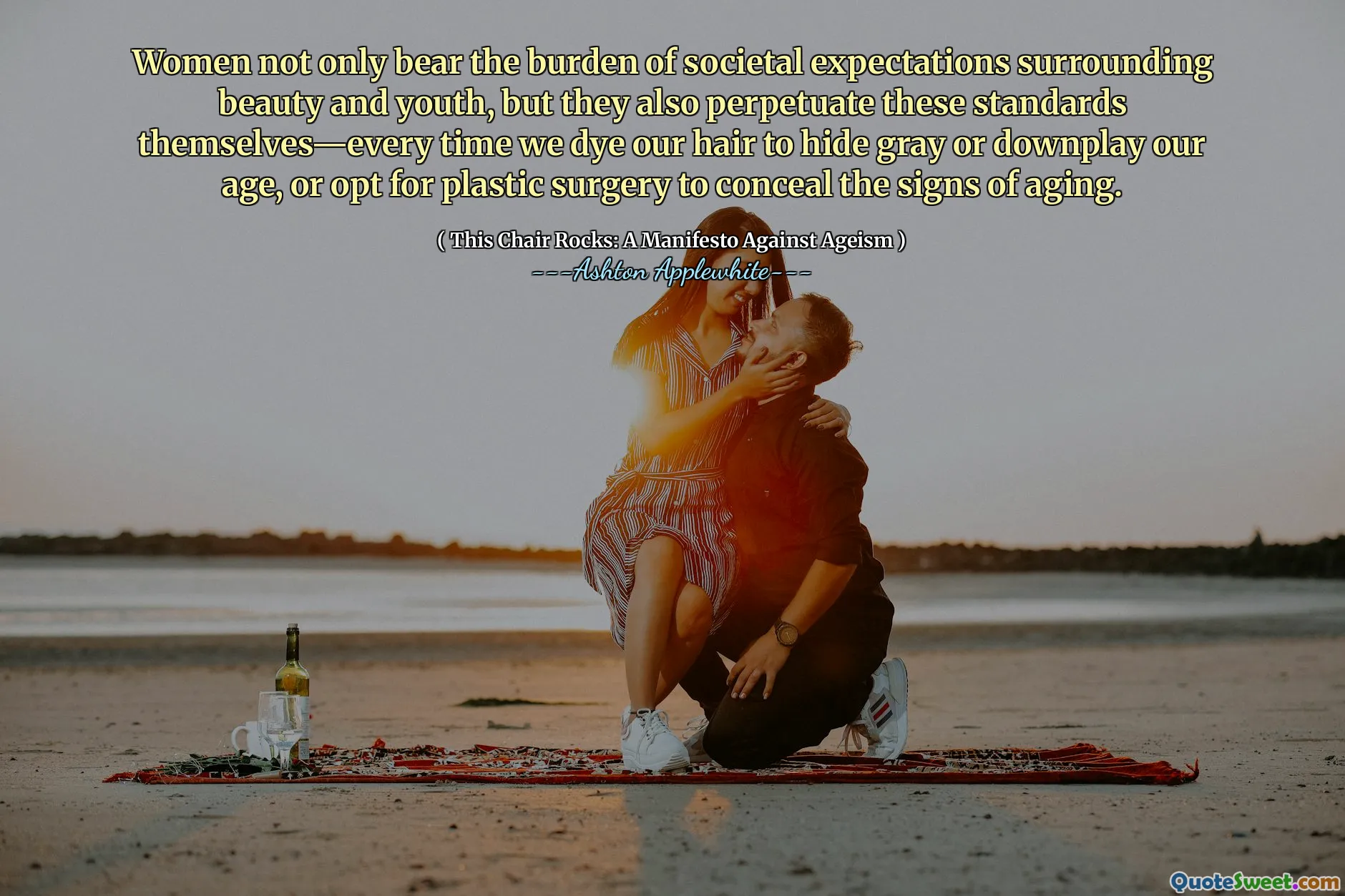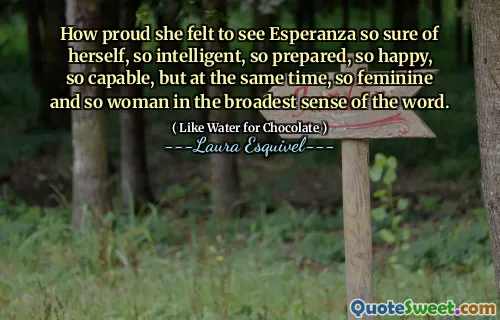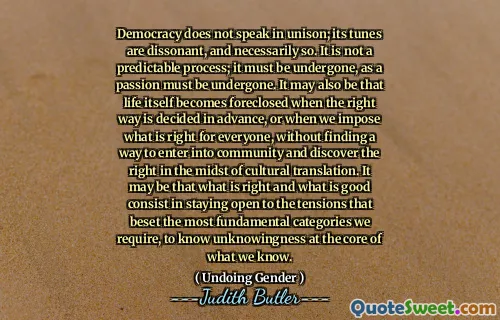
Women not only bear the burden of societal expectations surrounding beauty and youth, but they also perpetuate these standards themselves—every time we dye our hair to hide gray or downplay our age, or opt for plastic surgery to conceal the signs of aging.
[This quote compellingly highlights the paradox inherent in societal perceptions of female aging. It points out that women are often both victims of relentless beauty standards and active participants in maintaining them. The act of dyeing hair or concealing age-related changes isn’t just about personal preference; it's entrenched in the cultural narrative that youth and physical perfection equate to value and desirability. While these practices may offer individual empowerment and confidence, they inadvertently reinforce harmful stereotypes that aging is undesirable and that beauty diminishes with time. This creates a cycle where societal pressures compel women to change themselves to fit an often unachievable ideal, and in doing so, contribute to the perpetuation of these standards for others.
This dynamic is complex, as many women choose cosmetic modifications as a form of self-care or self-expression, and dismissing these choices outright can overlook their personal significance. However, the broader issue remains that society consistently places undue emphasis on eternal youth and superficial appearance—particularly for women—as markers of worth. Recognizing this paradox invites us to question the true nature of beauty and aging, encouraging a shift towards appreciating life’s natural progression and valuing individuals beyond their physical appearance. It’s a call to dismantle ageism rooted in aesthetic standards and foster a culture that celebrates aging as a vital and authentic part of human experience—free from societal shame or pressure.
Changing these perceptions requires collective effort, from redefining beauty norms to embracing diversity in age and appearance. When women recognize their own participation in these cycles of perpetuation, it opens doors to challenging and transforming societal attitudes, ultimately fostering self-acceptance and compassion. True empowerment lies in breaking free from these damaging standards and understanding that aging is not a flaw but a natural, beautiful part of life's journey.




